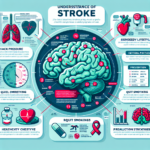
Beyond Traditional Therapy: A Guide to Finding Trauma-Informed Support
Introduction
In an increasingly complex world, the need for effective therapeutic support has never been more apparent. Traditional therapy, while beneficial for many, often fails to accommodate the unique experiences and needs of individuals who have faced trauma. Enter the paradigm of trauma-informed care—an approach that prioritizes understanding the impact of trauma on a person’s mental and emotional well-being. This article is your essential guide to navigating this transformative landscape. Beyond Traditional Therapy: A Guide to Finding Trauma-Informed Support equips you with the knowledge and tools to seek resources that honor your experiences and foster healing.
Understanding Trauma-Informed Care
What is Trauma-Informed Care?
Trauma-informed care is an approach rooted in the understanding that trauma can significantly affect an individual’s mental health, relationships, and overall life experience. It is built on several core principles: safety, trustworthiness, peer support, collaboration, empowerment, and cultural humility. Unlike traditional methods, trauma-informed practices acknowledge the possibility of trauma in every client, shifting the focus from “What’s wrong with you?” to “What happened to you?”
Case Study: Sarah’s Journey
Sarah, a 28-year-old survivor of domestic abuse, initially sought conventional therapy focused primarily on cognitive behavioral techniques. However, as she shared her story, her therapist maintained a clinical distance, which left Sarah feeling isolated. It wasn’t until she found a trauma-informed therapist who employed a relational approach that she began to feel understood and supported. Through this new lens of healing, Sarah was able to navigate her trauma and reclaim her identity.
The Importance of Finding the Right Support
Recognizing Your Needs
The first step in Beyond Traditional Therapy: A Guide to Finding Trauma-Informed Support is understanding your specific needs as a trauma survivor. Each person’s relationship with trauma is distinctive. Your past experiences and current life situation will influence what type of support you require.
Table 1: Types of Trauma and Impact on Therapy Needs
| Type of Trauma | Potential Impacts | Recommended Support Types |
|---|---|---|
| Childhood Trauma | Trust issues, attachment disorders | Attachment-Based Therapy |
| Complex Trauma | Emotional dysregulation, dissociation | EMDR (Eye Movement Desensitization) |
| Single Incident Trauma | Acute stress responses | Cognitive Behavioral Therapy (CBT) |
| Community Violence | Hyper-vigilance, PTSD | Community Healing Circles |
Case Study: John’s Transformation
John, a war veteran, struggled with PTSD after experiencing combat. Initially, he attended traditional therapy that utilized exposure techniques, which heightened his anxiety. After recognizing his need for more understanding, he transitioned to a trauma-informed center that provided group therapy led by veterans. This camaraderie created a safe space for John to share and heal, demonstrating how support differences can profoundly impact recovery.
Methods of Trauma-Informed Support
1. Therapies Rooted in Empathy and Understanding
Trauma-informed therapies focus on creating a safe environment where individuals can share their experiences without fear of judgment. Techniques may include:
- Narrative Therapy: This approach allows individuals to reconstruct their trauma story in a context that promotes healing.
- Somatic Experiencing: By focusing on body sensations, this method helps release trauma stored in bodily tissues.
2. Holistic Approaches
Holistic therapies consider the whole person—body, mind, and spirit:
- Yoga and Mindfulness: Incorporating these practices can help traumas’ physical and emotional manifestations.
- Art and Music Therapy: Expressing oneself through creative outlets can be incredibly healing for those who find it hard to verbalize their experiences.
3. Community-Based Support
Looking beyond traditional therapy, community support networks are invaluable:
- Support Groups: Connecting with others who share similar experiences can foster a sense of belonging and reduce feelings of isolation.
- Peer Support Specialists: Trained individuals who have lived through trauma can offer relatable experiences and insights, enhancing your path to recovery.
How to Identify Trauma-Informed Support Providers
Credentials to Look For
When searching for trauma-informed support, it’s crucial to identify providers who are specifically trained in trauma-informed care. Credentials such as:
- Certified Trauma-Informed Care practitioners
- Licensed therapists with a focus on trauma
- Accreditation in EMDR or other trauma-specific therapies
Questions to Ask Potential Providers
When contacting potential therapists, consider asking:
- What is your approach to trauma in therapy?
- How do you ensure a safe and supportive environment for clients?
- Can you explain your experience with trauma-informed methodologies?
Case Study: Laura’s Empowering Choice
Laura had been to therapists who didn’t address her trauma background, leading her to feel unheard and misunderstood. By asking specific questions about their approach, she found a therapist specializing in trauma-informed care who integrated mindfulness techniques. This not only made her feel safe but also empowered her to participate actively in her healing journey.
Resources to Explore Beyond Traditional Therapy
Books and Programs
- "The Body Keeps The Score" by Bessel van der Kolk: A comprehensive look at trauma’s impact on the body and mind.
- Trauma-Informed Yoga Programs: These can be found in various community centers or online platforms.
- Local Support Groups: Organizations like the National Alliance on Mental Illness (NAMI) offer resources that can lead to peer support opportunities.
Online Communities and Forums
Various online platforms, such as Reddit and specialized mental health forums, offer spaces for individuals to share their experiences and seek advice. Engaging in these communities can provide additional perspectives and support beyond traditional therapy.
Measuring Progress in Trauma Recovery
Understanding Recovery
Trauma recovery is not linear. Progress can sometimes feel like two steps forward and one step back. Tracking progress through journaling or regular conversations with your therapist can help contextualize your journey.
Table 2: Signs of Progress in Trauma Recovery
| Sign of Progress | Description |
|---|---|
| Increased Self-awareness | Understanding your triggers and responses |
| Improved Emotional Regulation | Better ability to manage feelings |
| Positive Relationships | Forming healthier connections with others |
| Enhanced Coping Strategies | Developing new ways to manage stress |
Case Study: Mark’s Personal Growth
Mark engaged in trauma-focused therapy over six months. Initially overwhelmed by his past, he learned to identify his triggers through journaling. Mark later reported feeling more in control of his emotions, which was a significant shift from his initial experiences. His story highlights that even in challenging moments, there is potential for growth and healing.
Conclusion
Embarking on a journey beyond traditional therapy is about recognizing the complex nature of trauma and the multifaceted ways it can be addressed. By seeking trauma-informed support, you empower yourself to explore healing options that resonate with your unique experiences. This guide serves as a beacon to navigate your path toward wellness, ensuring you are equipped to find the supportive resources you deserve.
As you move forward, remember that healing is possible and that the key lies in the understanding and compassionate care you seek out. Every step you take towards finding trauma-informed support is a step towards reclaiming your narrative and well-being.
FAQs
1. What is the difference between traditional therapy and trauma-informed care?
Traditional therapy may not specifically address trauma, while trauma-informed care recognizes and integrates understanding of trauma in its approach.
2. How do I know if a therapist is trauma-informed?
Look for credentials in trauma-focused areas, client feedback, or training in specific trauma-informed methodologies.
3. Are group therapies effective for trauma survivors?
Yes, many find group therapies provide validation, support, and understanding from those with similar experiences, greatly enhancing the healing process.
4. Can trauma-informed care help with physical symptoms related to trauma?
Yes, trauma-informed practices often address both mental and physical manifestations of trauma, aiding in a holistic healing process.
5. How long does it take to see progress in trauma recovery?
Progress varies for each individual; some may feel changes within weeks, while others may take months or longer. It’s essential to be patient and trust the process.
By embracing these insights, you can navigate the landscape of trauma-informed care confidently, empowering yourself in the journey toward recovery and wellness.















